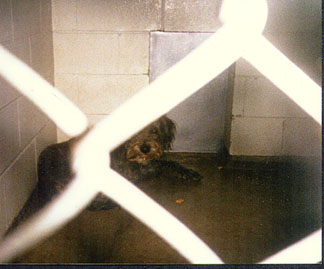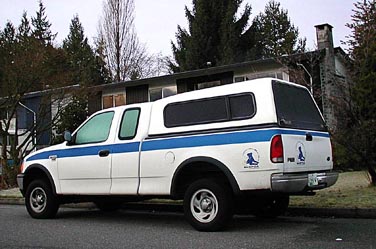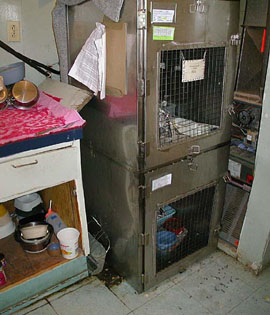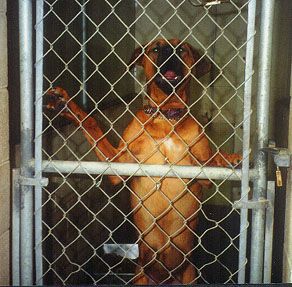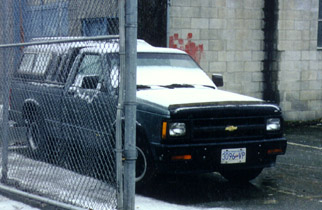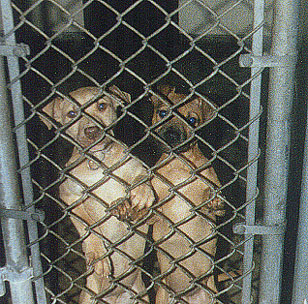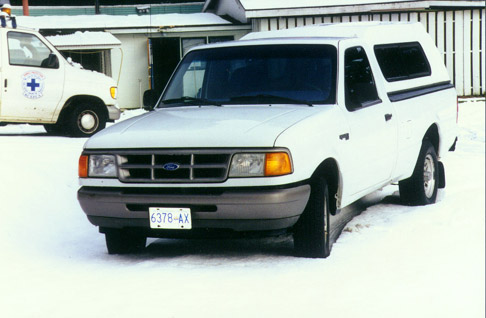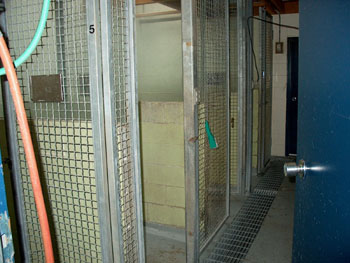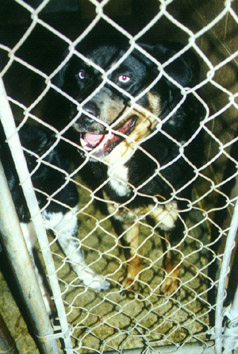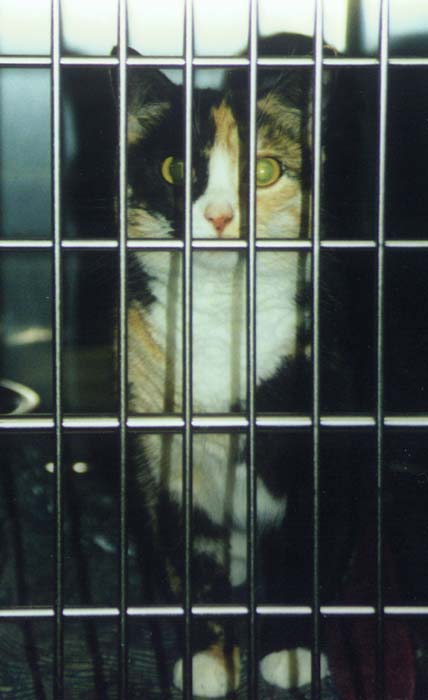|
The BC SPCA constantly cries poor in its appeals for donation; it has for decades. It houses animals in its "shelters" (what a vile corruption of a good word that is!) in dirty, cold, dark, cramped isolation, while it pays itself handsomely, travels on gold cards, hires only the best hotels for its many expensive meetings, gives itself three-day retreats to Harrison Hot Springs, renovates staff rooms, pays its union employees as much as $30 an hour, and gives some employees expensive new vehicles that are used for personal use. The CEO of the BC SPCA makes $132,000 a year (we don't know what perks are added to that). And the ex-CEO of the Vancouver SPCA was making $204,000 a year. Many of the millions of people who have donated for decades to the SPCA out of love for animals and in the belief that their money was being used to help animals have been fooled. All the dear old ladies who have faithfully sent their pittance every month and included the SPCA in their wills have been fooled. AAS has been told for many years by callers unhappy with the SPCA that it had no idea that the SPCA in it's community was the paid dog-catcher and the dog pound. And AAS has samples of SPCA fund-raising appeals in which it says it does not get a penny of government money, or the more careful, "our humane work does not get a penny of government money". SPCA "shelters" are in fact places where many animals go to be warehoused in grim, mediaeval cells, awash in a miasma of disease, surrounded by other fearful, sick animals, until they are returned to their "owners", or sold or killed. (See photos of the Maple Ridge SPCA cat cages: MAPLE RIDGE SPCA CAT CAGES PHOTOS) (AAS comment): But the SPCA can always find money for itself. And it can always find money for expensive lawyers to try to intimidate into silence those who do not agree with it. We don't deny the SPCA the right to good working conditions, but not lavish working conditions, not until the animals receive the basic care they need to be physically and socially healthy and happy. The fact that the SPCA continues to live high off the hog, even after being exposed publicly for personal excess, shows that the BC SPCA still doesn't "get it". It still thinks it can continue its decades long history of fattening off the plight of animals. When every animal in an SPCA "shelter" (what a corruption of a decent word that is!) is given basic care in a clean, healthy, enriched, environment, then and only then, is the SPCA entitled to any personal enrichment.) These pictures are not of some third world jail. This is where pets live when they’re taken to the SPCA. There’s only enough space to turn around and walk a step or two. There is no environmental enrichment. Most of the dogs have beds and most of the cats have Hide-and-Perch boxes now, after the public exposure of the abysmal conditions, but the animals don’t have the opportunity to run and play, the dogs rarely have anything to chew on and the cats have nowhere to sharpen their claws. SPCA kennels and cages don’t allow for these natural behaviours, critical to an animal’s well-being. An SPCA kennel or cage is designed for efficient animal storage. It’s enough to keep them alive. That’s all. Yet the SPCA promotes itself with the use of the Five Freedoms.* (AAS comment: Many animals die of neglect at SPCAs. They die alone, in cold, terrifying cells of disease and untreated injuries, in pain and fear. They become so ruined by the abandonment, the imprisonment, the solitary confinement, the lack of exercise, the lack of human contact and the lack of any remediation and stimulation except the stimulation of fear, that they descend into depression or anger and are put down for being "unadoptable" We also have a signed statement from an ex-employee of the Vancouver SPCA clinic. This is an excerpt from that employee's statement... ..."One incident I recall was about a female dog who came in for spaying. She was supposed to recover in a kennel up front where people could watch her and make sure she didn't lick her stitches etc. She was a barker and annoyed the person on duty, so they put her way in the back in a concrete run alone. They obviously forgot about her, so it wasn't until later that night when I got an urgent phone call from a worker to come to the hospital right away, as there was a dog who would not get up off the floor. When I arrived, I discovered that her entire spay incision had opened up, the blood had dried and was stuck to the floor so she couldn't move, and her insides were hanging out. Amazingly she licked my hand, wagged her tail, and gave me a pleading look with her eyes to help. I phoned the vet and asked him to come down and stitch this poor dog back together again, since I could see she was ok otherwise. The vet refused, gave a short laugh and said "tell the dog I'm sorry", and told me to euthanize her on the spot. Grudgingly, I did as I was told. It was really sad.") Surrendered pets have lost homes where they lived a family life. SPCA life is a terrible shock for them. Feral cats find themselves trapped and surrounded by noise and bustle. SPCA life is a terrible shock for them too. Sickness is common in shelters as stress, anxiety, loneliness and fear erode an uncomprehending animal’s immune system. Then death is often the only release from this kind of hell. If this were all the SPCA could do for them we might understand. But the SPCA runs its bureaucracy as if it were a wealthy profit-making corporation. Managers and executives enjoy expensive company cars. Travel expenses are not uncommon. Perks and benefits are enjoyed while the animals pine in their cells. The SPCA has a healthy bureaucracy. Life is good for management. Donor dollars have seen to that. If this were all a mere animal needed in order to thrive we might understand. But it’s well known now that animals’ psycho-social needs are similar to – if not the same as – our own. In a study, two groups of rabbits were put on a high cholesterol diet that predisposes to clogging of the arteries. One group was petted gently and talked to every day. The other group was not. The group that was petted showed less than half the changes in their arteries that the other group suffered. Simply put, animals need to feel cared for too. We could not endure living in the accommodation you see here. Neither can they. Brigitta MacMillan The BC Society for the Prevention of Cruelty to Animals is dedicated to protecting and enhancing the quality of life for the animals of the world we share. We pledge our energies to inspire and mobilize society to create a world in which all animals, who depend on humans for their well-being, experience, as a minimum, five essential freedoms:
|
